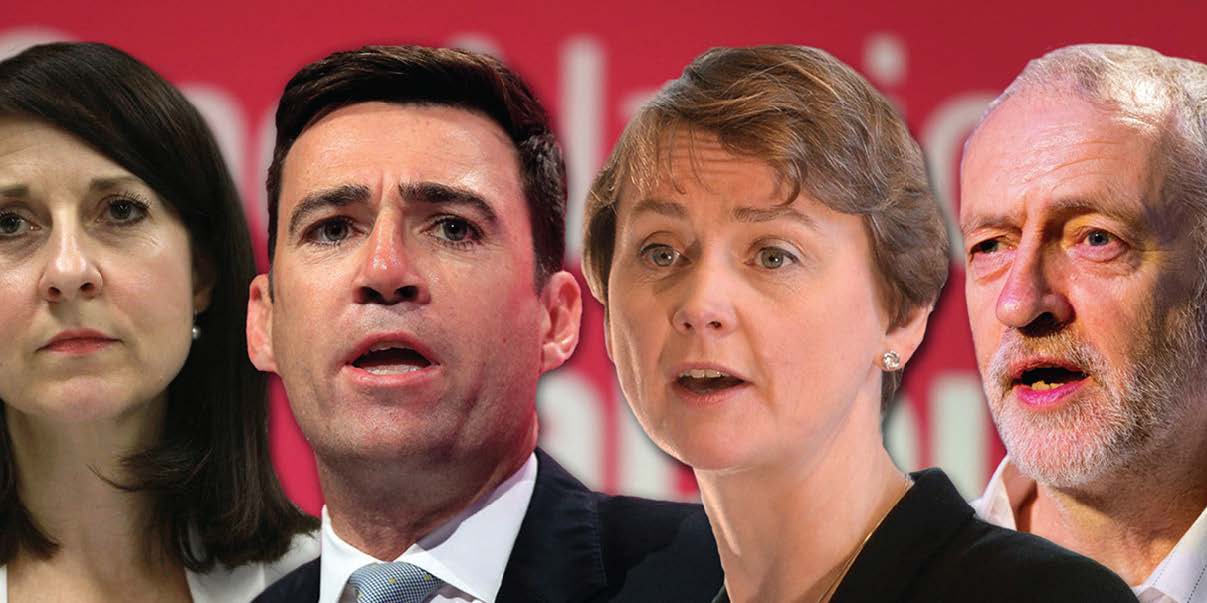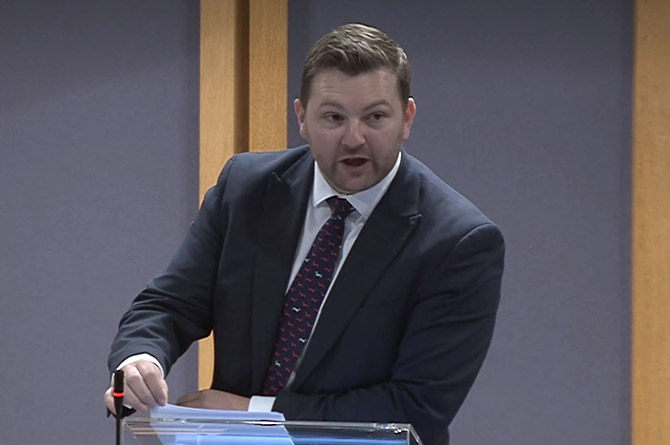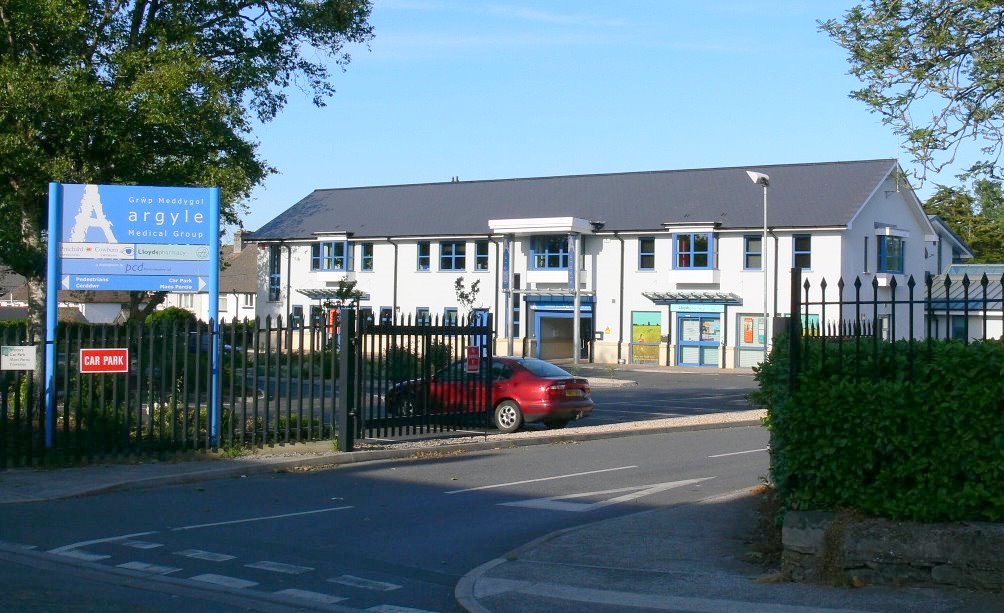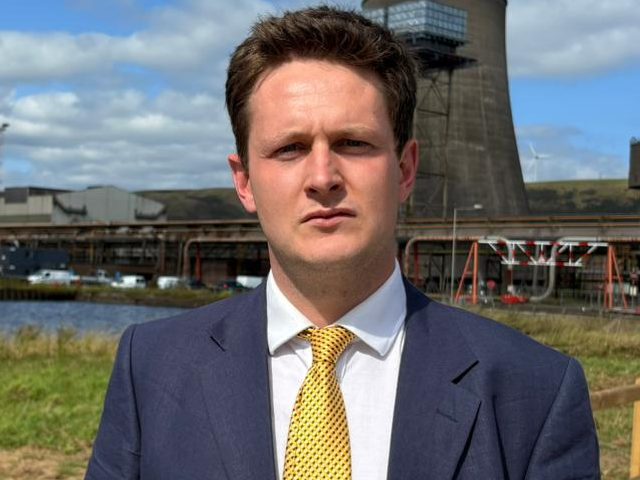Politics
What is the future for Labour?


Labour leadership hopefuls: L-R (in picture) Liz Kendall, Andy Burnham, Yvette Cooper, and Jeremy Corbyn.
FOLLOWING Ed Milliband’s resignation after the General Election, The Labour Party has been doing a serious amount of soul-searching. Numerous reasons have been given for the party’s poor performance, even though they gained seats in England and only lost one in Wales.
The most common reason given from inside the party is a variation on the theme that under Ed Milliband, the party veered too sharply to the left. There have been numerous ways of expressing this, from Chuka Umunna claiming that the party needed to be more ‘business friendly,’ to acting leader Harriet Harman and candidate Liz Kendall refusing to vote against the Conservatives’ welfare bill because British people have real concerns about benefit spending.
This contrasted sharply with the experiences of many canvassers who felt abandoned by the parliamentary Labour party, which made constituency candidates something of a hard sell in places. Across the country, the emergence of UKIP as, if not a credible political force, then certainly one strong enough to influence the outcome of any seat, was largely at the expense of what Labour would have considered core voters in 1997. Anti-austerity parties to the left also benefitted from Labour’s perceived lack of opposition to Conservative policies.
The election of a new Labour leader was meant to be the fairest and most transparent to date in a party that has traditionallyprideditselfonadherenceto democratic principles. Jeremy Corbyn, described ad nauseum in the press as an ‘Old Labour dinosaur,’ and a ‘veteran left-winger’ was only put on the ballot after 35 MPs, many of whom had no intention of voting for him, decided that all facets of the party should be represented. That these MPs were subsequently described as ‘morons’ by one of Tony Blair’s former advisors shows the extent to which the left-wing of the party is viewed as an embarrassment nowadays.
A strong showing ofpopular support for Mr Corbyn has led to outcry in the national press. A YouGov poll recently put him on CHECK %, leading to claims that the poll was inaccurate, and leading people to predict a schism in the Labour party similar to that which occurred when Michael Foot was made leader – something Mr Corbyn has blamed for the landslide defeat in 1983. The Daily Mirror, the only remaining left-wing tabloid, has suggested implementing an ABC (anyone but Corbyn) strategy, while on the other end of the scale Toby Young has suggested that those on the political Right join the Labour Party and vote for Mr Corbyn as a way of bringing down the Labour Party.
Mr Corbyn is certainly different to any leadership contender since the early nineties, if not before. Having said that, John Smith was considered to be on the centre-right of the party then, which shows how much the political landscape has shifted. The public spending cuts that Ed Balls claimed he would not alter if Labour were elected would have had an old One Nation Tory like Ted Heath spinning in his grave. Mr Corbyn has claimed that the role of leader should be more about facilitating debate rather than developing policies. He is known to favour the abolition of student fees, scrapping Trident, and the renationalisation of the rail industry.
There has been uproar in the Labour party about this. Apparently Labour should not be a party of protest but a party of government. It appears that from an opposition perspective, this means agreeing with most of what the party in power proposes, on the basis that they were voted in and are therefore what the electorate want. It may be facile to suggest that this makes the concept of an opposition moot, but certainly the parameters of debate will be narrowed.
Interestingly, a journalist for the Independent checked out the YouGov poll results for Mr Corbyn’s policies, and found that the public were heavily in favour, with 60% in favour of nationalising trains, for example. It appears that the claims that the Labour party has already suffered a split between the grass-roots supporters and the metropolitan ‘elite’ may have some basis in fact. A point which appears to be overlooked is that ‘three-time-winner’ Tony Blair still had the support of Labour’s core vote, until it began melting away over the New Labour years. Without this support, and without any way of either working with the SNP or encouraging Scottish voters back into the fold, the ‘swing seats’ targeted in ’97 will be increasingly irrelevant.
Andy Burnham, the politician many party insiders would like to see get the nod, is nominally on the left of centre, in the same way Yvette Cooper is slightly to the right. Mr Burnham is the only candidate to say that he would serve in a Corbyn shadow cabinet. Liz Kendall, considered one of the Blairite faction’s big hopes, has performed poorly, and is fourth-placed by some margin. A spoof facebook page – Liz Kendall for Conservative Leader – had nearly as many ‘likes’ as her own page before it was deleted. A problem appears to be the unwillingness of the other three candidates to commit on issues, for fear of jeopardising their shot at the top job.
Whoever emerges as Labour leader in the coming months will be in an unenviable position. They will have to reconcile those on the political Left and Right, and attempt to appeal to disillusioned Labour voters, as well as trying to take votes from the Conservatives and UKIP and, in all probability, having to work with the SNP and possibly Plaid Cymru in Wales, both parties with a broadly left-of-centre manifesto. It is far too early to tell what sort of a party will emerge at the other end, the outcome of a leadership battle fought across such a wide spectrum, and the ensuing rise in the number of party members, many of whom are looking for a credible alternative to the Tory-lite policies of the last two decades, will mean the party will indeed be living in interesting times.
News
Kurtz criticises Tufnell over GP pressures at Argyle Medical Centre

Local MS says Welsh Government decisions are root cause of crisis
CONSERVATIVE Senedd Member Sam Kurtz has criticised Labour MP Henry Tufnell after the MP suggested GP practice management should be held accountable for patient dissatisfaction at Pembroke Dock’s Argyle Medical Centre.
Patients registered at the surgery have for years raised concerns about access to appointments, particularly difficulties securing same-day consultations and long waits to get through on the phone.

Speaking to BBC Wales, Mr Tufnell said he had discussed the situation with the Health Board’s Chief Executive and claimed the senior official “feels powerless” to intervene.
He said: “I’ve spoken to the Chief Executive of the Health Board, and he feels powerless to do anything about it. We need to come together and hold the management of these surgeries to account; there must be transparency about what they’re doing, and, fundamentally, we need reform in the system.”

Mr Kurtz responded angrily, arguing that responsibility for reforming NHS Wales rests with the Welsh Government, not GP surgeries or frontline staff.
He said: “I don’t think it’s very helpful to point the finger at the surgery and suggest the fault lies with them when staff are working incredibly hard.
“If he wants to point the finger, it should be at his Labour colleagues in Cardiff Bay, who have continuously piled pressure onto GP practices by imposing contracts that are extremely difficult to deliver. That is why surgeries like Argyle are under such strain.”
Mr Kurtz later told The Pembrokeshire Herald that the problems faced by GP practices across Pembrokeshire were the result of long-term policy failures rather than poor local management.
“As someone born and raised in Pembrokeshire, I have seen first-hand the damage caused by the Welsh Labour Government’s mismanagement of our local NHS, despite the dedication and professionalism of frontline staff who continue to do their very best in increasingly challenging conditions,” he said.
“Anyone seeking to place the blame on NHS staff should back off. The fault does not lie with them. Real improvement will only come through properly supporting GP practices, listening to their concerns and working with them rather than against them.”
Argyle Medical Group is the second-largest GP practice in Wales, serving around 25,000 registered patients with nine GPs — an average of approximately 2,800 patients per doctor. In 2021, the practice had the equivalent of 10.75 full-time GPs and was actively seeking to recruit more.
However, ongoing recruitment difficulties forced Argyle to withdraw from its contract at St Clement’s Surgery in Neyland and reduce hours at St Oswald’s Surgery in Pembroke. Following the Neyland closure, patients were transferred to the Neyland and Johnston Medical Practice, which later handed back its GP contract after retirements and further recruitment problems. Those patients are now treated by salaried and locum GPs employed by the Health Board.
Similar pressures are being felt across Pembrokeshire, from Tenby in the south-east to St Davids in the north-west. While Wales does not face “GP deserts” on the same scale as the well-documented shortage of NHS dentists, reduced access to general practice has contributed to more patients attending hospital for conditions once routinely dealt with by GPs. This has placed additional strain on hospital services and staff.
In 2018, the Welsh Government pledged to recruit 1,000 additional GPs into NHS Wales. While overall GP headcount has risen, the number of full-time GPs has continued to fall. Many newer recruits work part-time, as locums, or on limited contracts, meaning fewer doctors are available in practice on a day-to-day basis.
Newly qualified GPs have also tended to favour larger urban centres, particularly along the M4 corridor and in north-east Wales, where professional support and career opportunities are greater. Critics argue that Welsh Government recruitment and retention strategies have failed to address persistent shortages in rural and coastal communities.
There are also ongoing shortfalls in independent prescribing pharmacists and community nursing staff, limiting efforts to relieve pressure on GP surgeries.
Mr Kurtz said: “The foundation of NHS care — with GPs as the first point of contact — has buckled. Blaming GP staff is a distraction. The issues are structural, long-term and political, and ultimately the buck stops in Cardiff Bay.”
Health
NHS Wales spends more than £15.5m on agency radiographers as pressures grow

NHS WALES has spent more than £15.5 million on agency radiography staff over the past five years, as mounting pressure on diagnostic imaging services raises concerns about long-term workforce sustainability.
Figures obtained by the Welsh Liberal Democrats through Freedom of Information requests show that spending on temporary radiographers almost doubled between 2020/21 and 2023/24, despite relatively low headline vacancy rates across Welsh health boards.
Radiographers carry out X-rays, CT, MRI and ultrasound scans, which are essential to emergency care, cancer diagnosis, trauma treatment and elective surgery. Delays or shortages in imaging services can have a knock-on effect across patient pathways, slowing diagnosis and treatment.
The data also highlights an ageing workforce. More than a quarter of radiographers in Wales are aged over 50, with more than one in ten aged 55 or above. In some health boards, a significantly higher proportion of staff are approaching retirement age, raising concerns that experienced radiographers could leave faster than they can be replaced.
Betsi Cadwaladr University Health Board recorded the highest agency spend, at more than £8.1m over the period covered by the FOI requests. Other health boards also reported growing reliance on temporary staff to maintain services, particularly where specialist skills are required.
While official vacancy figures remain comparatively low, professional bodies have previously warned that vacancy data does not always reflect pressure on services, as posts can be held open or covered through overtime and agency staff rather than filled permanently.
Diagnostic imaging demand has increased steadily in recent years, driven by an ageing population, advances in medical imaging technology, and rising referrals linked to cancer and long-term conditions.
Commenting on the findings, Welsh Liberal Democrat Leader Jane Dodds MS said:
“Radiographers are absolutely vital to the NHS. From diagnosing cancer to treating people in A&E, the vast majority of patient journeys depend on timely access to scans.
“These figures show a system increasingly relying on expensive agency staff while failing to plan properly for the future workforce. That is not fair on patients, and it is not fair on staff who are already under huge pressure.
“The Welsh Labour Government must take urgent action to improve recruitment and retention, support experienced staff to stay in the workforce for longer, and ensure NHS Wales has a sustainable radiography workforce fit for the future.”
The Welsh Government has previously said it is working with health boards to improve recruitment and retention across NHS Wales, including expanding training places and supporting flexible working arrangements to help retain experienced staff. Ministers have also pointed to record numbers of staff working in the NHS overall, while acknowledging ongoing challenges in hard-to-recruit specialties.
However, opposition parties and professional bodies continue to warn that without long-term workforce planning, reliance on agency staff could increase further, adding to costs and pressure on already stretched diagnostic services.
Politics
Ajax armoured vehicle trial paused again as MP warns jobs must be protected

A FRESH pause to trials of the Ajax armoured vehicle programme has prompted renewed calls for workers’ jobs in Wales to be safeguarded.
The trial has been halted after another soldier reportedly fell ill during testing, adding to a series of delays and technical problems that have dogged the long-running Ministry of Defence project.
Welsh Liberal Democrat Westminster spokesperson David Chadwick MP said the repeated failures raised serious questions about accountability and cost.
He warned ministers must ensure taxpayers are not left footing the bill if the programme ultimately collapses, arguing that responsibility should rest with defence contractor General Dynamics.
“With the Ajax programme beset by repeated failures and significant delays, ministers need to confirm that taxpayers will not be left to bear the cost of these failures,” he said.
“If the project does end up being scrapped, the Government must ensure that the 400 workers currently employed on the programme in Merthyr Tydfil will receive full support.”
Mr Chadwick added that the Merthyr site should be prioritised for future defence and military development work if Ajax does not proceed, to protect skilled jobs and investment in the area.
The Ajax programme has faced years of scrutiny over safety concerns, excessive noise and vibration, and mounting delays, with the latest pause reigniting pressure on the Government to clarify the project’s future.
-

 Crime1 day ago
Crime1 day agoMilford Haven man jailed after drunken attack on partner and police officers
-

 News4 days ago
News4 days agoDyfed-Powys Police launch major investigation after triple fatal crash
-

 Crime1 day ago
Crime1 day agoTeenager charged following rape allegation at Saundersfoot nightclub
-

 Crime2 days ago
Crime2 days agoMan charged with months of coercive control and assaults
-

 Crime3 days ago
Crime3 days agoMan sent to Crown Court over historic indecent assault allegations
-

 Crime5 days ago
Crime5 days agoMan spared jail after baseball bat incident in Milford Haven
-

 Crime3 days ago
Crime3 days agoMilford Haven man admits multiple offences after A477 incident
-

 Crime2 days ago
Crime2 days agoWoman ‘terrified in own home’ after ex breaches court order





















